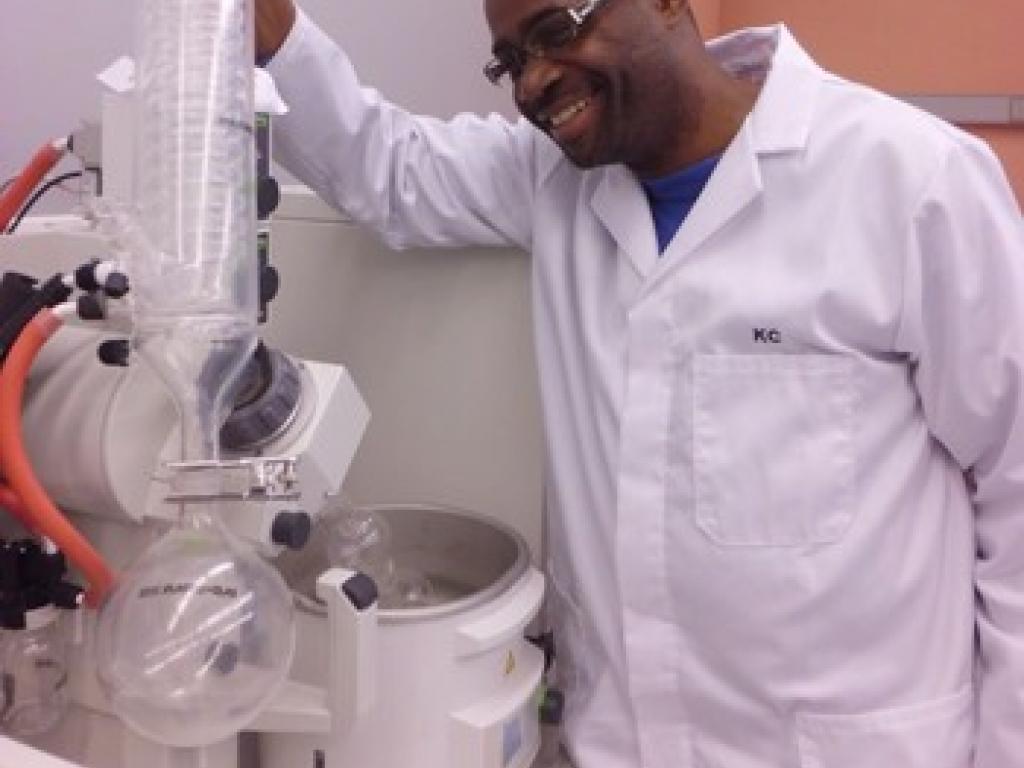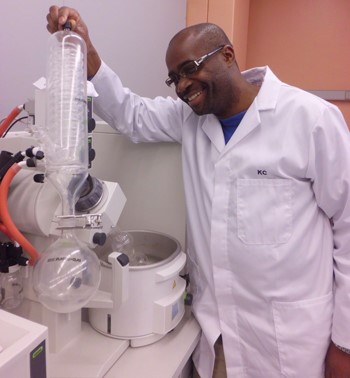UCT's Professor Kelly Chibale on international drug advisory board


Prof Kelly Chibale in the lab.
The UK government has appointed an expert advisory board to advise how it can best spend an additional 50 million British pounds over the next five years to fund innovative initiatives to tackle drug resistant infections, which include resistance to antibiotics.
Professor Kelly Chibale, founder and director of the University of Cape Town’s Drug Discovery and Development Centre (H3D) and founding director of the South African Medical Research Council / UCT Drug Discovery and Development Research Unit, has been selected as a member of the advisory board.
The 12-member board was appointed by Professor Dame Sally Davies, the Chief Medical Officer for England and UK government adviser to support the Global Antimicrobial Resistance Innovation Fund (GAMRIF).
Professor Davies said, “Antimicrobial resistance (AMR) poses the biggest threat to global health with the potential to kill millions each year. No one nation, or sector, can tackle this alone, and therefore it is critical that we encourage the public and private sectors to work together to tackle AMR globally.
“I am proud that we are bringing together such a wealth of expertise to form a multi-disciplinary board that will identify the gaps within the current funding system and the best opportunities for funding solutions.”
Professor Chibale said that he was honoured to be selected as a member of the board based on his drug discovery and global health experience. H3D is globally recognised for its ground-breaking research into a possible single-dose cure for malaria. In addition to malaria and tuberculosis drug discovery, H3D has also recently expanded into AMR drug discovery, specifically resistant Gram-negative bacteria.
“AMR represents the greatest threat to modern medicine. The UK has continued to champion the need for tackling the threat of AMR at the highest political level, including at the G7, G20 and recently at the UN General Assembly. As a member of the board, I will play a vital role in the set-up of the fund and work to develop and shape the scope of the fund, recommend mechanisms of delivery of the fund’s budget, and work to create a platform to leverage additional investment in AMR Research and Development,” said Professor Chibale.
The GAMRIF will help to invest in:
- High-quality research and development and stimulate innovation to tackle AMR to promote the welfare of people in low and middle income countries
- Neglected areas which may currently lack commercial or academic interest, for example for research that aspires to prolong the shelf life of existing antibiotics
- Areas of research and development around new therapeutics, alternative therapies, preventative measures and diagnostics.
The expert advisory board will provide critical advice on aspects such as the precise scope of the fund, scientific objectives and investment opportunities. It will also consider where the health need is greatest in low- and middle-income countries.
Story Kim Cloete. Photo Supplied
